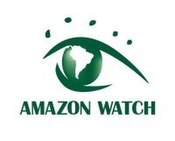Amazon Watch
| Founded | 1996 |
|---|---|
| Type | Non-governmental organization |
| Focus |
Environmentalism Indigenous rights |
| Location | |
|
Area served
|
Amazon Basin |
|
Revenue
|
US$ 1,485,169 (2012) |
| Website | amazonwatch.org |
Amazon Watch is a nonprofit organization Founded in 1996, and based in Oakland, California, it works to protect the rainforest and advance the rights of indigenous peoples in the Amazon Basin. It partners with indigenous and environmental organizations in Ecuador, Peru, Colombia and Brazil in campaigns for human rights, corporate accountability and the preservation of the Amazon's ecological systems.
In 1964, the Texaco Petroleum Company, in partnership with Gulf Oil, started exploring for oil in Northeast Ecuador. In 1974, the Government of the Republic of Ecuador, acting through the state-owned oil agency Petroecuador, obtained a 25% interest. Two years later, Petroecuador acquired Gulf Oil's interest and became a 62.5% owner of the Lago Agrio oil field. By 1993, Petroecuador had also acquired Texaco's interest. After Texaco completed environmental remediation, the Government of Ecuador inspected and certified the work and ”absolved, liberated and forever freed” Texaco Petroleum from “any claim or litigation by the Government of Ecuador.” Nevertheless, in November 1993, a group of Ecuadorians filed a class action lawsuit on behalf of 30,000 inhabitants of the Oriente region, alleging that Texaco polluted the rain forests. After extensive litigation, the U.S. Court of Appeals affirmed in Aguinda v. Texaco an earlier court's dismissal on the basis of "forum non conveniens." Thus, legal proceedings were started in Ecuador in 2003.
Amazon Watch supports the Ecuadorian plaintiffs by publishing a press kit alleging that Chevron (corporate successor to Texaco) should be held accountable for the dumping of 18 billion US gallons (68,000,000 m3) of toxic waste water into a region of Ecuador's Amazon rainforest inhabited by more than 30,000 people – purported to be one of the largest oil related contaminations ever, far exceeding that of the Exxon Valdez disaster. A 2011 decision in Ecuador ordered Chevron to pay $9.5 billion. Ecuador's Supreme Court in 2013 affirmed the trial court judgment in a 222-page decision that documented the extensive and life-threatening levels of oil pollution at dozens of former Chevron well sites in the jungle. In all, eight appellate judges in Ecuador reviewed the evidence against Chevron and affirmed the judgment as well as dismissing Chevron's allegation of fraud. When Chevron refused to comply with the $9.5 billion judgment against it for contamination in the Lago Agrio oil field, the plaintiffs' lead attorney, Steven R. Donziger, attempted to collect the judgment in Brazil, Argentina, and Canada. Chevron then filed suit in the United States, and relying on the Racketeer Influenced and Corrupt Organizations Act (RICO Act), alleged that plaintiffs' attorneys in the Lago Agrio litigation had engaged in extortion and fraud by paying almost US$300,000 in bribes to obtain the 2011 court verdict in Ecuador. On 4 Mar 2014, Judge Lewis A. Kaplan concluded that "the course of justice was perverted" and enjoined Donziger from instituting any enforcement proceedings in the United States. Donziger has appealed to the U.S. Court of Appeals, Second Circuit.
...
Wikipedia

